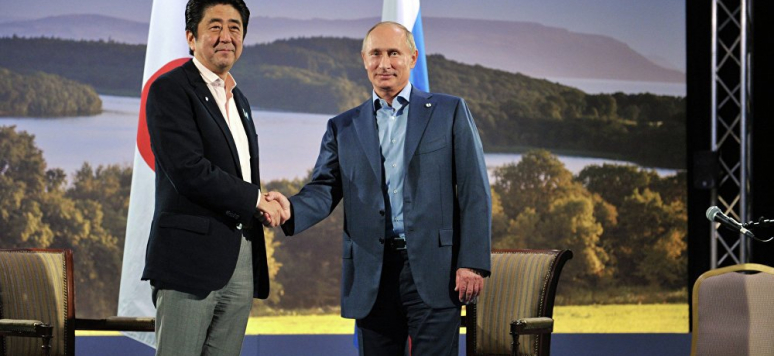Russie.Eurasie.Visions - Japan-Russia: The Limits of a Strategic Rapprochement Russie.Nei.Visions, No. 104, Ifri, October 2017

By reinforcing hostility between Russia and the West, the Ukraine crisis has shone a spotlight on the limits and contradictions of any Russo-Japanese rapprochement. Russia has grown more dependent on China, just as Japan has become more reliant on the United States.
Russia’s decision to reinvest in the Far East, both politically and militarily, and the renewed prominence of security issues in talks over territory, are symptoms of Russia’s hardening stance towards the Western powers, first and foremost the United States. Russia is also sceptical about the economic benefit of an eventual territorial agreement with Japan.
Indeed, the summit between Abe and Putin in December 2016 seemed to herald a new approach: Russia and Japan now favour an improvement in relations that is gradual, pragmatic and wide-ranging. Henceforth, the territorial dispute between Russia and Japan will only be solved once they cooperate better economically, mainly by working together to develop the Southern Kuril Islands. This approach has a number of benefits: it encourages dialogue and regular visits, offers tangible proof, with each “mini-victory”, that the partnership is advancing and allows both governments to feed their populations stage-managed stories of diplomatic triumph. In its early stages, it should finally allow Japan to return to the islands, rather than the islands to return to Japan. Nevertheless, working out how such a project would function in practice remains extremely difficult, not least because it would require the islands to be granted a special status.
Céline Pajon has been a researcher and Japan specialist at Ifri’s Center for Asian Studies since 2008, where she analyses the evolution of Japanese foreign and defence policies, as well as following the major debates of Japanese political life. Her research also covers the international relations and geo-strategy of the Asia Pacific region.
